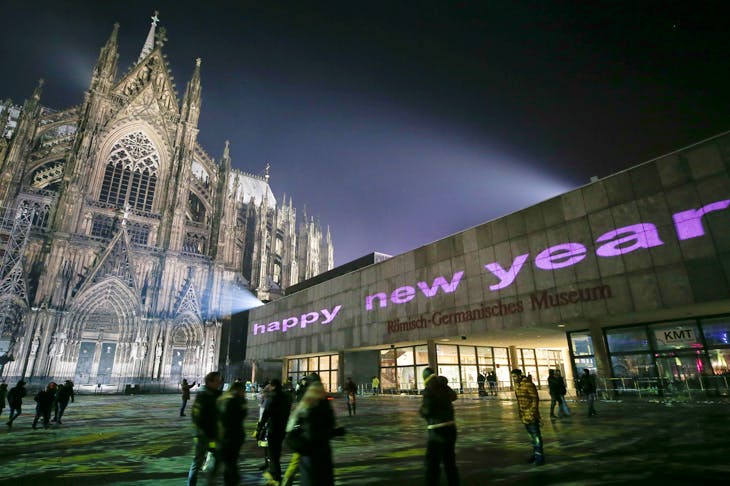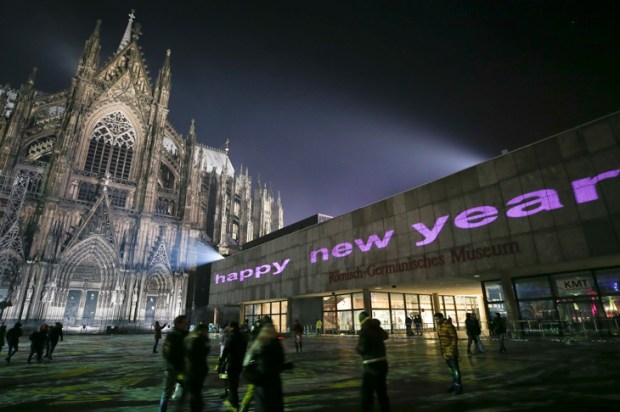This time last year, the German media lost the confidence of the German people. News of the mass New Year’s Eve sex attacks by asylum-seekers in Cologne filtered into the public consciousness via ‘alternative’ media, while the mainstream outlets chose to withhold the truth. Later apologies by these outlets showed just how condescending and dangerous their decision-making processes had been.
When finally the mainstream did report, via a tortuous trickle of truth, that hundreds of recently arrived asylum-seekers had groped, raped, and robbed women out to celebrate NYE, Germans began to question why they had been kept in the dark for so long. This breach of trust is the context for a media squabble over what happened in Dortmund this latest NYE.
In November last year, Breitbart News announced that it will be launching a German-language site. The new site will offer Germans another perspective in the lead up to the 2017 federal elections.
In the night to New Year 2017, a Breitbart reporter wrote of a ‘1,000-man mob’ which, he said, ‘began throwing fireworks into crowds of visitors, which also included families with children. Asked by officers to stop, the mob turned to pelt fireworks at police instead’ and ‘set the roof of Germany’s oldest church alight as well as chanting Allahu Akhbar around the flag of al-Qaeda and Islamic State collaborators’. ‘The events of the night were described as “quiet” by police in a statement, and as “normal” by a spokesman for the city government,’ the site later reported, in understated horror.
Germany’s mainstream media have hysterically dubbed the Breitbart report, ‘fake news’. They claim it erred on details, by making it sound like there were civil-war style conditions in the German city.
By way of comparison with Breitbart’s account, the local newspaper, the Ruhr Nachrichten, reported that large and small groups of foreign men moved through the inner city between 18:45 and 23:30… they formed a large group, of around 1,000, in a city square. There were no sex attacks like in Cologne the previous New Year. Fireworks were thrown into the crowd. At the main train station, an unknown person let a firework off in the direction of a homeless man, injuring him badly. A building site fence around the Reinold church (not Germany’s oldest) was set alight. A group of men celebrated the ceasefire in Syria with singing.
You could be forgiven for wondering if the discrepancies thus far were bad enough to warrant the label ‘fake news’.
While the Breitbart reporter had claimed that the men were chanting ‘Allahu Akhbar’ around an al-Qaeda and Islamic State collaborator flag, the FAZ points out that outside of alt-right or ‘fake news’ sites, the group in question is regarded as relatively moderate rebels in the Syrian civil war, and not, as Breitbart suggests, a militarised, Islamist-dominated opposition to the Assad regime. It’s a very slim difference, given no-one really knows who is what in the Syrian ‘baddies versus baddies’ conflict, but one the mainstream press has made much of.
The mainstream media is at pains to point out that the police evaluated the situation as satisfactory, under control and relatively peaceful due to ‘the visible presence of security forces’ . In fact, had it not been for the Breitbart report, the Dortmund events wouldn’t have made the national news at all.
Without having been a witness to the events in Dortmund, it is safe to say that the truth of the two reports lies somewhere in between. In German cities, especially in areas with large Turkish-German and Arab-German populations, New Year’s Eve has always looked a bit like a mini-civil war. Fireworks are legal in Germany for the New Year period and available for purchase at any corner shop. Groups of young men ‘with foreign backgrounds’ get about the place yelling and throwing Knallerbsen, little stone-like fireworks that make a loud noise but which are otherwise harmless, under other people’s feet. They also let off bigger fireworks on footpaths and in parks, near where people are going about their business. Let me be clear: for the most part, this is not dangerous (except perhaps to the eardrums) but it is menacing and deliberately aggressive.
The singing, chanting and flag-waving are also nothing out of the ordinary. This behaviour predates the recent mass asylum-seeker influx. But perfectly reasonable people, such as the former and current mayors of the Berlin problem-area of Neukölln, have pointed out the intimidating effect this has, perhaps is meant to have, on other residents.
Another delightful New Year habit that falls within the category of ‘normal’ is car burning. In France, 650 cars were set on fire this NYE, up from 602 last year, says Die Welt. Across Germany it was more like a couple of hundred in total on NYE, but there is no definitive count I can find. Over 2016, the number of cars set on fire in Berlin alone doubled to 372. Car arson in Germany and France is pretty much exclusively the remit of ‘immigrant’ youths, though many are born in these countries. But then immigration and integration are twin failures in Europe and shouldn’t be evaluated independently.
The fact that these events are ‘normal’, and have been for decades now, is important. If people are disillusioned with Merkel and uncertain that Germany can handle new immigration, it is precisely because Dortmund 2017, and countless other NYE ‘celebrations’ of its type, did not automatically make the national news.
So when Breitbart reports sensationally on what is in fact the norm, the mainstream media is right to say that they are making news out of olds. It would also be right to say that Breitbart is playing fast and free with the facts. But the old situation wasn’t so great that it deserved to become regarded as normal. What’s more, the mainstream media’s moral high ground is undermined by its own selective reporting. And any journalism student will tell us there is no such thing as an objective choice of words.
This media skirmish is a foretaste of what we can expect throughout this European election year. If Germans are particularly susceptible to false information or sensationalist reports, it is because the German media failed to report timely and unvarnished facts on key occasions. People have learnt to turn to sites like Breitbart for information. As with all news sites, they are served it along with a heavy sauce of interpretation. Breitbart has not ‘won over’ the audience as much as the mainstream media have lost it. Doubling down on that approach will increase the German appetite for alternatives.
Got something to add? Join the discussion and comment below.
Get 10 issues for just $10
Subscribe to The Spectator Australia today for the next 10 magazine issues, plus full online access, for just $10.














Comments
Don't miss out
Join the conversation with other Spectator Australia readers. Subscribe to leave a comment.
SUBSCRIBEAlready a subscriber? Log in